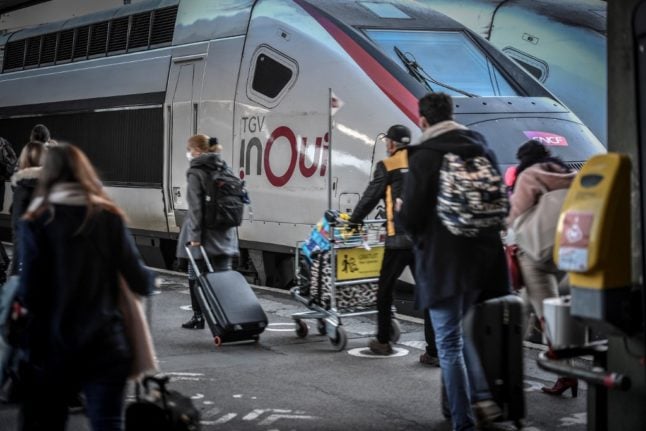SNCF on Monday launched its summer sale campaign aimed at boosting train bookings as France’s 10 kilometre-rule restricting travel disappeared.
The chief of the rail company, Christophe Fanichet, told French daily Le Parisien that the goal was to “respond to the expectations of the people in France, who now want to go away.”
READ ALSO 10 of the best Covid-compliant activities in France this summer
The offer included 5 million tickets in total capped at €39 maximum on the high speed TGV Inoui trains, low cost Ouigo trains and regional Intercité trains, covering 3,000 destinations over the summer holiday period, according to Fanichet.
While the trips included journeys as late as August 29th, the offer will only remain in place until May 19th, the date when France enters its second reopening phase, if the health situation permits.
IN DETAIL The calendar for reopening France after lockdown
Furthermore, the rail company will put on sale a special offer for children under 12 years old, with summer holiday tickets sold at €8 between May 4th and May 15th.
All these tickets will be exchangeable and fully refundable until three days before departure, which is the policy for the summer holiday period.
SNCF’s last year relaxed its policy on exchanging tickets due to the health situation and allowed customers to cancel or change their journey up until departure.
Those cancellation policies would expire on May 9th. From May 10th until August 29th the new rules will take effect, meaning travellers cancelling later than three days prior to their journey would be paying the standard fare.
SNCF said it was planning to increase the number of trains running in the months to come, reaching an 80 percent service on its TGV high speed trains compared to the 40 percent currently.
The third lockdown, albeit a partial one, left rail company SNCF in dire straits. The rule restricting travel over 10km to essential errands only sent train bookings plunging, and only 5 percent of the TGV high speed trains were fully booked in April, according to Le Parisien.
Travellers coming into France from other countries within the EU must bring with them a negative PCR Covid test taken less than 72 hours before departure. Full rules on travel into France HERE.



 Please whitelist us to continue reading.
Please whitelist us to continue reading.
Member comments